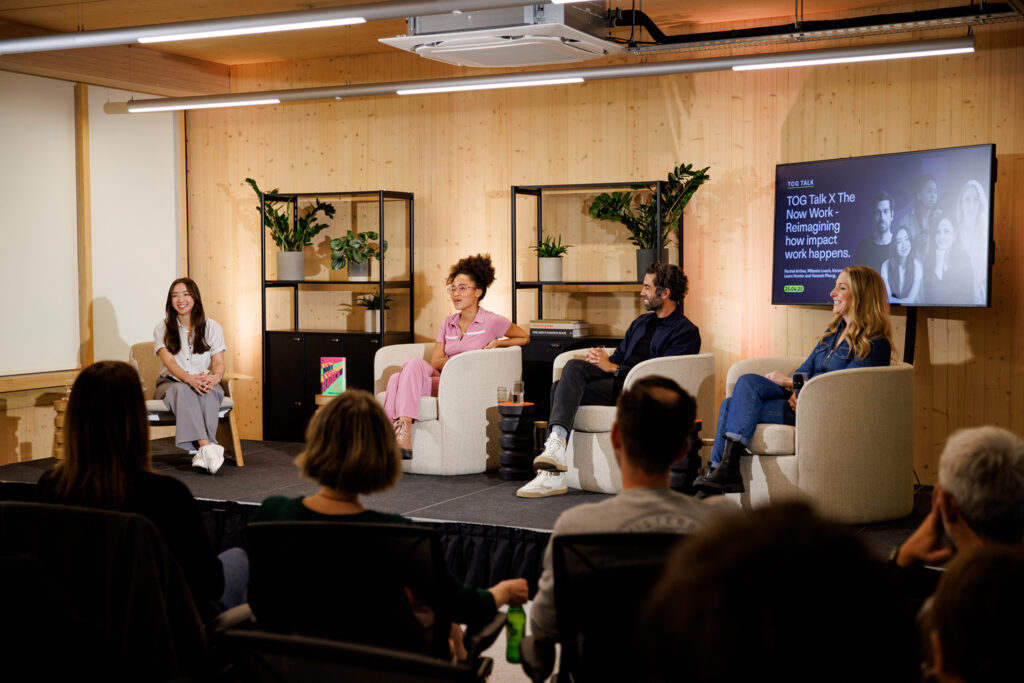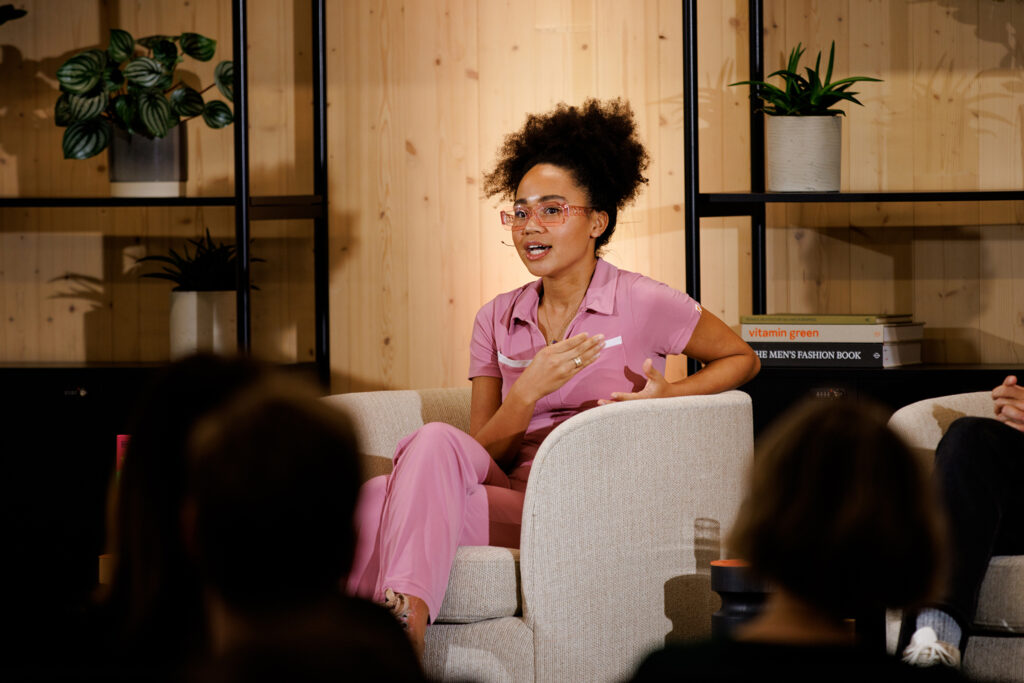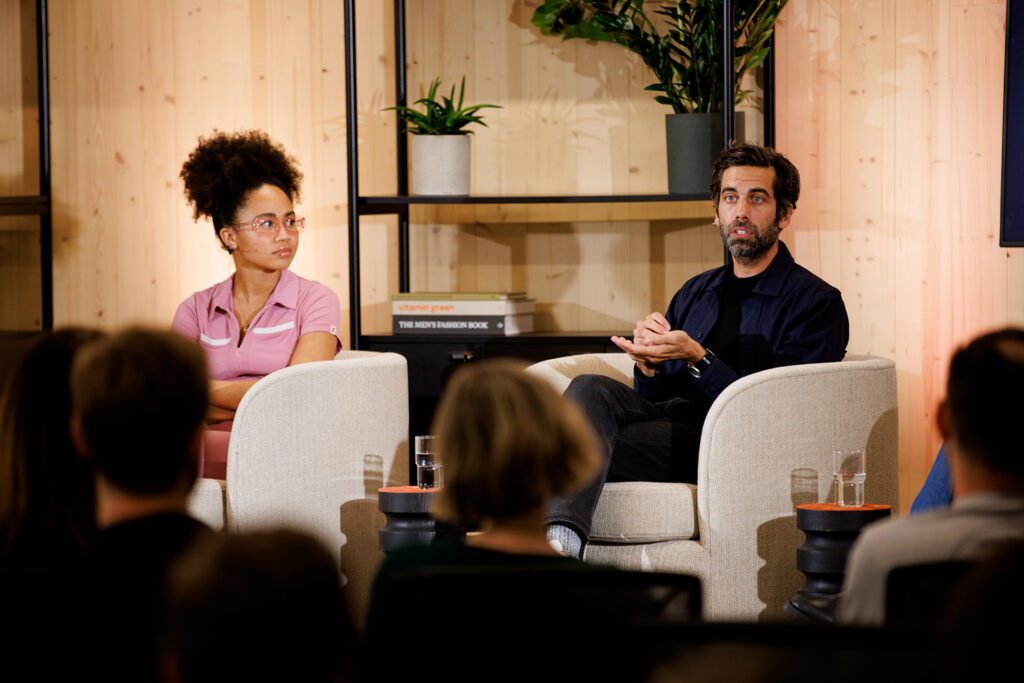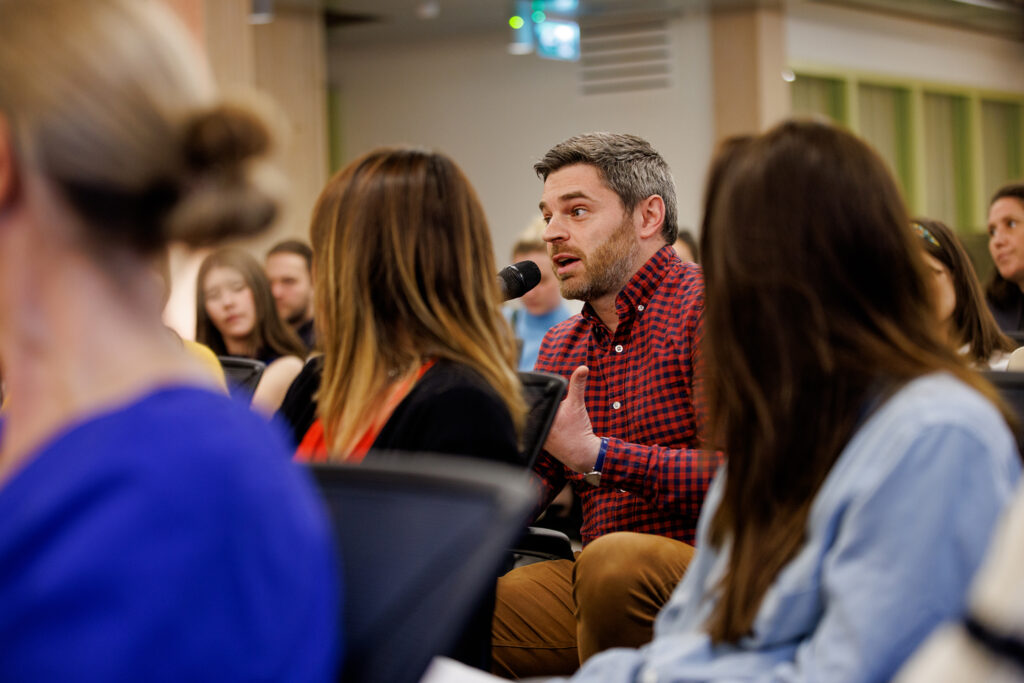
To mark Earth Day 2023, The Now Work, in collaboration with The Office Group Talk series, convened a panel of inspiring and insightful experts to discuss a big question: how can the way we organise work in sustainability to help accelerate the transition to a regenerative, equitable future?
It’s a question that comes at important time when many working in sustainability feel overworked and burnt out when we need action and drive more than ever. The ‘role-ification’ of work means that people are getting stuck in vertical careers unable to fulfil their curiosity at a time when we need radical innovation. And, in the business world, a scarcity mindset and spirit of competitiveness prevail when the demand for collective intelligence has never been clearer. Rachel Arthur, Advocacy Lead for Sustainable Fashion at the United Nations Environment Programme; Mikaela Loach, Climate Justice Activist and Author of It's Not The Radical: Climate Action to Transform our World; and Kerem Alper, Co-ounder of Neol and Chair of ATÖLYE, joined forces with The Now Work’s moderator Hannah Phang, to explore with in-person and online audiences how re-imagining the way work happens can help people working in sustainability to do better work, be more effective, and keep themselves well and thriving. Here are some of the key insights they shared.
Our only true agency is collective agency
In the face of vast and complex systemic challenges, our feelings of smallness and impotence can grow. For some, that can lead to feeling like you must take on more work, produce more, and work harder and faster than ever before. This is reinforced culturally as we live in a world that celebrates hustle culture, doing it all and burning yourself to the ground. But as Mikaela Loach said: “If we’re trying to build a liberated and transformed world, in the pursuit of that future, we need to be living in pockets of it now.”

So how do we create work cultures and environments that don’t replicate the same systems that we say we’re against? As Mikaela argued: “We can’t just use the same frameworks of hierarchy, dispossession and harm.” An honest reflection from Mikaela was that writing her book, getting it out into the world, taking the UK government to court and studying for her medical degree had all contributed to her own burnout. One of the main ways she is trying to moderate this is through the power of community. “The only real way we can tackle these systems is to turn to community. We need to humanise each other at every moment, be with other people and get support, care and love… And it’s also important to remember that while every single one of us is important, no one person can save everything. So, we do need to tackle our own egos here – how do we create space for others to join so that weight can be lifted?”
We need new infrastructures and transparency to enable leaps in creativity
The power of community and the collective was a sentiment echoed by Kerem Alper, the co-founder of the decentralised creative community, Neol. The old-world management theories and practices, often based on hierarchy, bureaucracy and secrecy are no longer fit for purpose and, as Kerem argued, people feel this and are looking for new ways to work. “It’s here where people turn to community. As an individual trying to pursue a new way to work and to tackle systemic issues, you realise quite quickly that you can’t do it alone. With community, you are no longer limited, bound or constrained: instead, you are expanded.”
Transparency in organisational structures and operations is also vital. “Historically, organisations have thick walls. They try to keep others out and keep intelligence and novel thinking in. This has helped companies succeed over one another but when it comes to some of the huge issues we have to solve, this model is non-functional.” Network-based systems turn this outdated model on its head. “The future will be organisations that see themselves as building gardens, not structures – where they plant things, design for diversity and enable creativity to flourish.”

However, transparency and collaboration are not always easy – especially between organisations that traditionally compete with one another. As Rachel Arthur noted on her work of leading multi-stakeholder sustainability initiatives in the fashion industry. “My personal experience is that on an individual level – particularly on this topic – everyone is willing to collaborate. The hard thing is getting the organisational buy in, especially and when we go from talking to implementing.”
Can sustainability consultancy drive the systemic change we need?
Rachel noted that some of the changes that need to happen within fashion supply chains fundamentally require the industry to face into the injustices and extraction that prop up the industry. And perhaps this is where the biggest challenge around sustainability work came to the fore. The world requires nothing less than systemic change, but when many businesses are profiting from the current system how can we ensure that sustainability practitioners are not enabling business to continue with the status quo?
A brilliant question from a member of The Now Work sparked an important discussion: “How often are we having conversations about climate justice in board rooms?” It’s clear that setting long-term targets and designing siloed DEI programmes simply won’t do, can allow a feel-good factor that covers up predatory delay or even give bad actors the social license to operate. As Mikaela noted, social license is powerful.

“Part of the reason is that the amount of harm that exists because society – whether knowingly or not – has granted brands and industries the social license on the basis that they are necessary or needed. But many industries in the past, slavery being one of them, have had that social license removed through a range of tactics ranging from property destruction and huge public campaigns to boycotts.” In the same way, we can’t expect destructive industries to simply play ball. “Their social license needs to be removed.”
From her experience working within industry, Rachel Arthur offered that: “We talk about the balance between incremental and systemic change work, and I’ve been through that on a personal level on my career journey. A decade ago, I felt I was checking boxes while the business continued as usual. I tried to address that by working on projects that I could see would contribute to something bigger – even if tangentially at times. But it’s also important to recognise that you as an individual are not just working with a business, you are working with people within that business and if you are having an influence on them, there is a ripple effect.”
A huge thank you to our panellists for leading such an insightful and inspiring discussion. Thank you to all of our guests, both online and in-person, for joining us for this event and contributing to the conversation. We would also like to thank The Office Group for hosting us in their new mass timbre building in the heart of Shoreditch.
If you missed it, catch up here where you can watch a full recording of the event.
